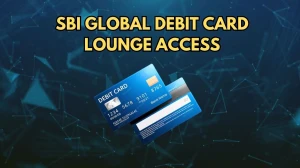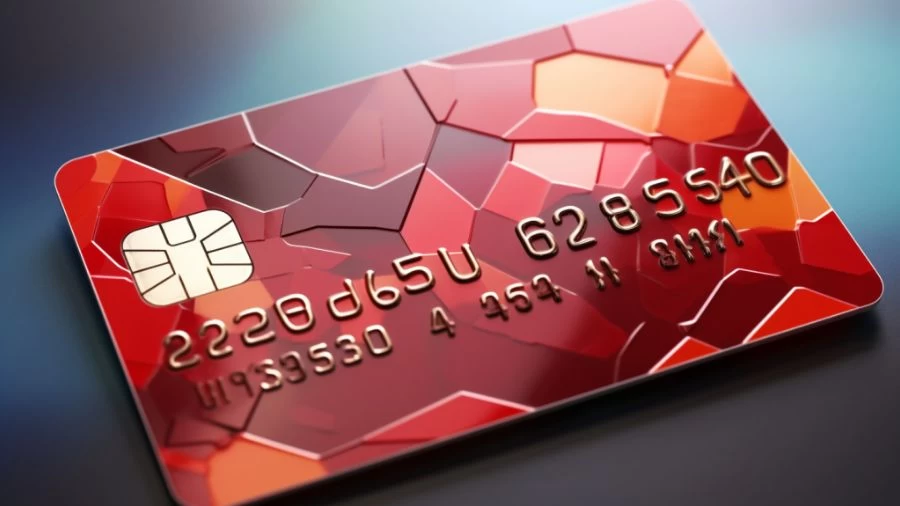
- Home »
- Debit card »
- What is a Debit Card? How Does Debit Card Works?
What is a Debit Card? How Does Debit Card Works?
A Debit Card is a payment card linked to a checking account that allows you to make purchases and withdraw cash using your own funds, working by deducting the transaction amount directly from your account balance.
by Kowsalya
Published Aug 04, 2023 | Updated Dec 11, 2023 | 📖 7 min read
What is a Debit Card?
A debit card, also known as a check card or bank card, is a payment card that offers a convenient and cashless way to make purchases and access funds. Linked directly to your checking account, a debit card allows you to pay for goods and services at various merchants without the need for physical cash or checks. Additionally, debit cards can be used at ATMs to withdraw cash, providing easy access to your funds anytime, anywhere.
Some transactions can also additionally require you to go into a Personal Identification Number (PIN) for safety purposes, whilst sure purchases may be made without one.
It's important to note that using a debit card to withdraw cash from non-affiliated ATMs might incur transaction fees. Some debit playing cards even provide rewards programs, just like credit score playing cards, supplying advantages together with cashback, making them a popular choice for individuals seeking a convenient and rewards-oriented payment method.
Join us on a captivating voyage into the dynamic landscape of Credit Cards, where MarketsHost serves as your beacon of knowledge, illuminating the path to financial success.
What is a CVV on a Debit Card?
A Card Verification Value (CVV) on a debit card is a three or four-digit security code, depending on the card type (Visa, Mastercard, Discover use three digits, while American Express uses four). Positioned on the back of the card near the signature strip or on the front above the card number, the CVV adds an extra layer of security for online transactions.
Merchants often request the CVV during card-not-present transactions to confirm the cardholder's physical possession, mitigating the risk of fraudulent activities. It serves as a safeguard by preventing the storage of CVV data and making unauthorized online transactions more challenging. To maintain security, it's crucial to keep the CVV confidential and adopt safe online practices.
Related >> Best Debit Cards With No Foreign Transaction Fees
What is a Prepaid Debit Card?
A prepaid debit card functions similarly to a gift card, enabling users to spend a predetermined amount stored on the card. Issued via way of means of banks and branded via way of means of important credit score card corporations like Visa, MasterCard, Discover, and American Express, those cards
Prepaid debit cards are particularly beneficial for those without access to traditional debit or credit cards, providing a secure means of carrying money and facilitating online transactions. However, users should be aware of associated fees, including monthly fees, transaction fees, ATM fees, reloading fees, and foreign transaction fees, which can impact the card's overall value.
Related >> Debit-card Spending Limits
How Does a Debit Card Work?
A debit card is a payment card directly linked to your checking account, functioning by deducting funds immediately from your account when making purchases or withdrawing cash from ATMs. Unlike credit cards, which involve borrowing, a debit card's spending limit is determined by your account balance. It may require a Personal Identification Number (PIN) for transactions, though some allow PIN-less purchases.
While offering convenience and eliminating the need for cash, debit cards may incur fees like ATM transaction fees or insufficient funds charges. They provide a secure means of accessing funds, limiting expenditures to available account balances, and are a safer alternative to carrying cash.
Related >> Best Debit Cards That Offer Rewards
What Are the Pros and Cons of Using Debit Cards?
Here are the key advantages and disadvantages of using debit cards, providing valuable insights into their safety, spending limitations, fees, rewards, and overall financial security.
Pros of Using Debit Cards
- Debit cards are safer than carrying cash, reducing the risk of theft or loss. Additionally, most debit cards come with PIN numbers, adding an extra layer of security.
- Debit cards allow users to spend only the money they have in their bank accounts, preventing the accumulation of debt that often occurs with credit cards.
- Debit cards are easier to obtain than credit cards, making them accessible to individuals with limited credit history or lower credit scores.
Cons of Using Debit Cards
- Debit cards restrict expenditures to the available balance in the linked bank account. Additionally, there are often daily spending limits, which can be a drawback for larger purchases.
- Debit card users might incur fees, such as overdraft fees if the account balance is exceeded or ATM fees if using an out-of-network ATM.
- Debit cards generally offer fewer perks than credit cards, lacking features like cashback rewards, travel benefits, and other incentives commonly provided by credit card issuers.
- While debit cards offer some fraud protection, they usually provide fewer safeguards compared to credit cards. Credit cards often have more robust fraud protection and dispute resolution processes.
What Are the Different Types of Debit Cards?
Debit cards come in various forms, each catering to specific financial needs and purposes. In this overview, we'll explore the different types of debit cards, ranging from regular debit cards issued by banks to specialized options like ATM cards, prepaid debit cards, and Electronic Benefits Transfer (EBT) cards.
Regular Debit Cards
Regular debit cards are directly issued by your bank or credit union and are directly linked to your checking or money market account. Recognizable by logos of major card networks such as VISA, Mastercard, or Discover, these cards facilitate both in-person and online purchases. Additionally, they allow users to make deposits and withdrawals from their accounts through ATMs.
ATM Cards
ATM cards, also provided by banks, are specific to certain bank accounts. Their primary purpose is to enable users to obtain cash from ATMs or make deposits at these machines. Unlike regular debit cards, ATM cards are not designed for online or in-store purchases and are limited to cash transactions and deposits.
Prepaid Debit Cards
Prepaid debit cards, while connected to a bank account owned by the user, are not issued directly by the bank. Before utilization, these cards must be loaded with funds. They operate similarly to regular debit cards, allowing purchases both online and in-person. However, some prepaid cards may have associated fees for various services, making them distinct from regular debit cards.
Electronic Benefits Transfer (EBT) Cards
EBT cards are issued by government agencies to provide social benefits to eligible individuals. Programs such as nutritional assistance allocate benefits monthly to the card balance. Cardholders can utilize EBT cards to make approved purchases at merchants that accept them. These cards are specifically designed to support social welfare programs and cannot be used for general banking or retail transactions.
What is the Difference Between a Debit Card and a Credit Card?
Here are the key distinctions between debit cards and credit cards, outlining their differences in the source of funds, consumer protections, credit history impact, fees, rewards, usage limitations, and financial discipline.
|
Aspect |
Debit Card |
Credit Card |
|
Source of Funds |
Directly deducts money from the user's checking account. |
Provides a line of credit issued by a financial institution. |
|
Debt Accumulation |
No debt accumulation as it uses existing account funds. |
Accumulates debt if the user doesn’t pay the full balance. |
|
Consumer Protections |
Limited fraud protection; liability depends on reporting time. |
Strong fraud protection; maximum liability capped, often at $50. |
|
Credit History Building |
Does not contribute to building or improving credit history. |
Contributes to credit history if used responsibly. |
|
Interest and Fees |
No interest or annual fees; potential overdraft fees if the account is overdrawn. |
Involves interest on balances not paid in full monthly; potential annual fees and various transaction fees. |
|
Rewards and Benefits |
Typically no rewards; and limited perks from the associated bank. |
Offers rewards, cash back, travel points, and various benefits based on usage and card type. |
|
Usage Restrictions |
Spending is limited to the available account balance. |
Can spend up to the credit limit set by the card issuer. |
|
Financial Discipline |
Encourages responsible spending within available funds. |
Requires discipline to avoid accumulating high-interest debt. |
What is a Debit Card - FAQs
1. What is a CVV on a debit card?
A CVV is a three- or four-digit security code, separate from the card number, used for online transactions to verify card possession.
2. Are debit cards safer than carrying cash?
Yes, debit cards are safer as they reduce the risk of theft or loss; most come with added PIN security.
3. Can debit cards be used for online purchases?
Yes, debit cards can be used online, allowing cashless transactions and direct deductions from the linked account.
4. Do debit cards have spending limits?
Yes, spending limits are defined by the available account balance, preventing users from overspending.
5. How can I obtain a debit card?
To get a debit card, open a checking account with a bank, provide personal details, request a debit card during the application, activate it, and start using it for transactions.




